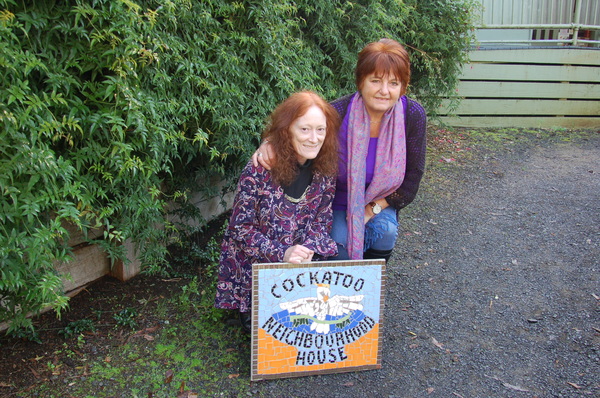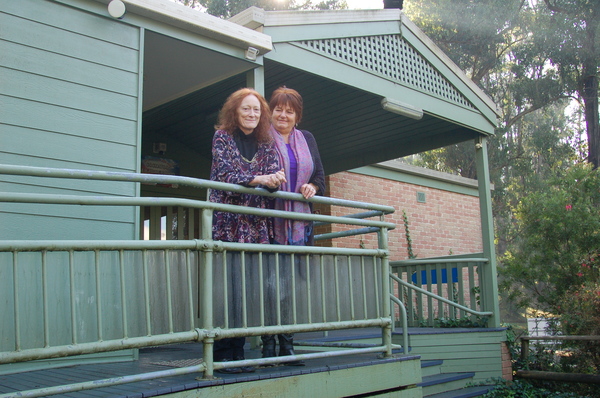
By Bonny Burrows
A community centre born from the devastation of Ash Wednesday faces closure if it cannot find more cash.
Cockatoo Neighbourhood House has revealed it will close its doors if it doesn’t fund-raise $2000 by 30 June.
The threat comes after the centre, which started as a drop-in point and support centre for residents in the weeks following the 1983 fires, failed to run at a profit during the last financial year.
The neighbourhood house expanded to become a community hub over the past three decades years and has grown to include dance classes, computer courses, and cooking and craft sessions.
But its focus has always been on promoting social inclusion and a sense of community for people of low socio-economic backgrounds.
Cockatoo Neighbourhood House co-ordinator Hanny Schoen said at least 80 per cent of its clients were low income earners which meant that the centre struggled to meet its financial requirements while attracting clients.
“Because of the low fees we break even at the end of each financial year,” Ms Schoen said.
“But this year we’re short. We need a minimum of $2000 to break even by 30 June otherwise we close.”
While the centre has attracted strong numbers and scrapped by financially in previous years, this year’s shortage has left its co-ordinator fearing the worst.
Class prices were put up in the last year in a bid to increase cash flow but the higher prices resulted in reduced attendance.
Ms Schoen said previously “extremely popular” cooking classes were now attracting just a handful of people, which indicated that increased prices didn’t work.
In a last-ditch attempt to save the centre, she and assistant co-ordinator Annie White have turned to the general public for donations to get the centre into surplus, but have so far had little luck.
Ms Schoen said the community had been “overwhelmingly supportive” but the donations weren’t coming.
“We can see it in the support we get. People want us to stay open and not close, they just don’t have the spare money to give,” she said.
Ms White said obtaining a surplus each year was difficult.
“We are a not-for-profit organisation that now needs to find a way to make a profit while keeping class costs down,” she said.
The co-ordinators hates to think what would happen if the centre closed, but said an increase in social isolation was a real danger.
“It’s really hard; we don’t know what’s happening. It’s scary, actually,” Ms Schoen said.
“A neighbourhood house is very important in an isolated area like Cockatoo – it needs to stay open.”
If the $2000 goal is achieved by the deadline, centre management has formed a plan to ensure a similar situation doesn’t occur next year.
“We are currently formulating a strategic plan which includes ways to generate income and save money,” Ms White said.
“The appeal for donations is a one-off request. We really just need to make it through this financial year. We can’t close.”
To donate to the Cockatoo Neighbourhood House, visit https://www.gofundme.com/rc6dkq or phone the house on 5968 9031.
How this house became a home
Established in late February 1983, Cockatoo Neighbourhood House is a shadow of its former self.
Originally a room at the back of a fire safe hall in Caroline Avenue, it began as a drop-in point in co-ordination with the Red Cross to help people get through the emotional impact of the fires.
Women would leave their children at the safe space while they went to work, while adults would gather after hours to help each other though the devastation of losing everything.
“It came from a need for women and men to come together and talk, to get everything off their chest,” Cockatoo resident and original house volunteer Faye Allan said.
“We all lost something in the fires, it was pretty horrific, but out of this came this little group.”
Following the February fires, it remained as a drop-in centre for many years as the Cockatoo community slowly rebuilt.
It was a safe place for support, Ms Allan said.
“It was a lot different back then, nothing like the neighbourhood house it is today,” Ms Allan said.
“I’m not really sure when it transitioned into the ‘neighbourhood house’, so to speak; it was for a long time a drop-in centre.”
Some years later, it then temporarily relocated to St Luke’s Hall and then into a purpose-built annex at the rear of the town hall, providing after school care.
But community demand grew, and the venue limited the number of participants and activities the house could offer.
So in 1998, the centre relocated to the town’s fire refuge and the neighbourhood house boosted its services with the inclusion of a computer room in 2002.
The house remained comfortably at that location until March 2007, when it moved to its current site of 23 Bailey Road, “a better suited” facility co-located with the local kindergarten.
Ms Allan said it was a reminder of the community strength during a devastating time and its closure would be greatly felt.








